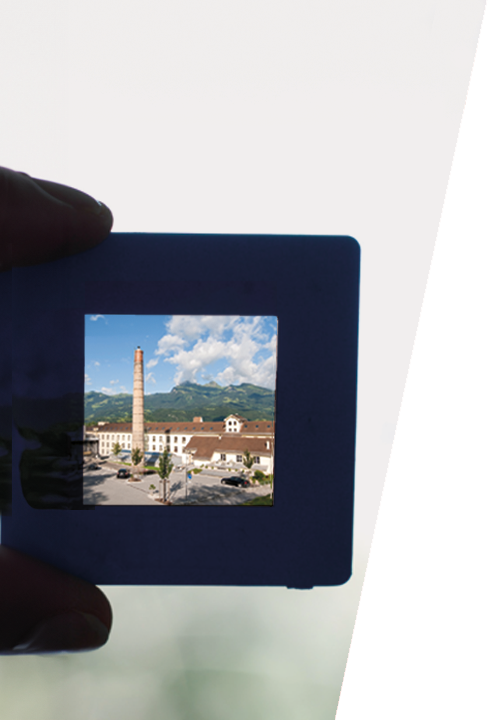Portrait
The Private University in the Principality of Liechtenstein (UFL) is an independent, modern educational institution committed to excellence in teaching and research. Its self-image is based on academic freedom, social responsibility, and interdisciplinary cooperation. The UFL sees itself as an open centre of thought and research, where critical reflection, interdisciplinary exchange and scientific progress come together. It not only imparts knowledge, but also empowers people to master the scientific craft in order to positively shape the world through research.
At our faculties - the Faculty of Medical Sciences and the Faculty of Law - we offer study programmes specifically designed to be completed while working. A structured course of study enables our students to combine their academic training with their professional commitments and thus pursue their career goals.
Four research institutes and one research centre have been established at the UFL: the Institute for Laboratory Medicine (ILM), the Institute for Translational Medicine (ITM), the Institute for Liechtenstein Law and Legal Theory (ILRR), the Institute for European and International Law (IEIL) and the ‘UFL International Center for Intellectual Property and Innovation Law’.
UFL empowers people to thrive in today’s knowledge-driven society. This is a permanent, lifelong cycle. UFL provides the key to unlocking the door to new worlds of knowledge and experience. UFL is committed to actively participating in the sustainable further development of an equal society.
UFL is an agile and independent university in the Principality of Liechtenstein. Under the motto “Education is life-long!”, UFL fulfils the task of enabling working people in particular to work academically and make a creative impact. We participate in the formation of values in society by conducting a self-critical discourse and orienting our research towards ethical and socially relevant topics. We are committed to diversity and sustainability. As an educational institution, UFL aims to contribute to the beneficial development of society. To this end, it develops and tests the necessary concepts.
The values of the Private University in the Principality of Liechtenstein (UFL) reflect our unwavering dedication to lifelong and career-long education. We provide those interested with the skills to carry out independent academic work. We are committed to independent and free research and guarantee the highest quality in teaching and research with our name. Our commitment to sustainable development, particularly in the field of education and science, is a key part of our mission to a create a better future.
We are s a unique educational institution in the region and beyond. We fulfil the clear need for continuous learning. Our agility and independence drive us to innovate daily in teaching and research and to address current social developments. We are deeply rooted in a culture of mutual understanding and diversity.
We are an innovative team that fully identifies with the goals and tasks of UFL and contributes to their realisation. Our work enhanes the diversity of education in Liechtenstein and to promotes Triesen as a centre of education. We actively foster cooperation in research and teaching with national and international partners who share our values. We provide a platform for academic exchange and make science and research accessible to a wide audience. Our core values of openness and a sense of community are at the forefront of everything we do.
| 2020 | Celebration of the university’s 20th anniversary and realisation of a room extension to meet the increasing demands of students and teaching staff. |
| 2019 | Introduction of further training programmes aimed at deepening and broadening the specialist skills of graduates. |
Since 2017 | Switch to annual start dates for both doctoral programmes to continue to meet the growing demand for skilled professionals. |
| 2. April 2008 | The name change is officially approved and the university is now known as “Private University in the Principality of Liechtenstein”. |
| 2007 | Launch of the first study programme in the Doctor of Law programme, also designed to be part-time in order to provide a flexible study structure. |
| 2005 | Launch of the first programme of the Doctor of Medical Sciences programme, which is offered on a part-time basis and allows students to combine their academic training with work commitments. |
| August 2006 | The members of the University Council submit an application to the Government of the Principality of Liechtenstein for a change of name to better reflect the new orientation of the University. |
| Summer 2004 | The University undergoes a fundamental reorganisation of its teaching and research, with the former subjects of psychology and philosophy being replaced by departments of medice, natural sciences and law. |
| 4. April 2003 | State recognition of the University is granted by the Government of the Principality of Liechtenstein, based on the results of a comprehensive peer review and recognition of the institution’s outstanding pioneering achievements. |
| 3. Oktober 2000 | Official opening of the University of Human Sciences in the Principality of Liechtenstein. |
| 29. August 2000 | The University receives official authorisation from the Principality of Liechtenstein to establish and operate. |


